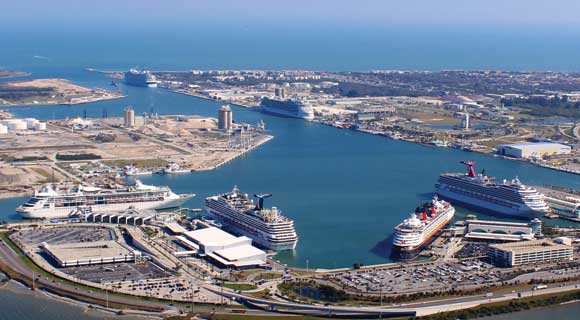Florida U.S. Sen. Bill Nelson Looks To Increase Security At Train Stations, Ports
By Space Coast Daily // September 22, 2016

U.S. Sen. Bill Nelson (D-FL), the top Democrat on the Senate Commerce Committee which oversees the Transportation Safety Administration, filed legislation today to increase security at train stations across the country following Monday’s pipe-bomb explosion at a rail station in New Jersey.
Nelson, a former member of the Senate Intelligence Committee, says that while the TSA has been hyper-focused on securing our nation’s airports after the 9/11 terrorist attacks, recent events both here in the U.S. and overseas will require the agency to increase its focus on other modes of transportation.
“As we’ve seen recently, train and subway stations aren’t immune to terrorist attacks,” said Nelson.

“Despite this fact, the majority of TSA activities focus on security at airports. This bill says that TSA should take into account all forms of transportation when it comes to security and provides the agency with some tools needed to get it done.”
Nelson’s legislation would require the TSA to, among other things, immediately increase the number of K-9 teams patrolling train stations and ports.
It would also require the TSA to enhance its screening of rail passengers and maritime workers.
In addition to screening passengers and baggage at more than 450 U.S. airports, the TSA is also charged with overseeing security of our nation’s surface transportation, such as highways, railroads, buses, mass transit systems, pipelines and ports. TSA Administrator Peter Neffenger told a congressional panel in April that the agency uses only “3% of its budget on surface transportation security.”
Here are the highlights of Nelson’s bill:
Enhances Risk-Based Security Planning
• Requires the TSA administrator to conduct a risk analysis and implement a risk-based security model for surface transportation facilities.
• Mandates risk-based budgeting for surface transportation security focusing resources on current threats with annual reviews of program effectiveness.
Canine Explosive Detection Teams for Surface Transportation
• Authorizes as many as 70 additional canine teams to work in surface transportation security as soon as possible.
• Requires a review of the number, location, and utilization of canine teams in surface transportation security to ensure effective use.
• Following this review and the implementation of recommendations, TSA may then raise the total number of canine teams to 200 above the number currently in place.
Increases Transparency
• Mirroring the advisory committee for aviation established by the Aviation Security Stakeholder Participation Act of 2014, establishes a Surface Transportation Advisory Committee to provide stakeholders and the public with the opportunity to coordinate with the agency and comment on policy and pending regulations.
• Requires that TSA budget submissions clearly indicate which resources will be used for surface transportation security and which will be dedicated to aviation.
• Directs TSA to regularly update Congress on the status of long overdue surface transportation rulemakings.
Reforms Port Security and TWIC
• Requires TSA to address gaps and improve the screening of maritime workers.
• Mandates a comprehensive third party assessment of the Transportation Worker Identification Credential (TWIC) program and a corrective action plan to address deficiencies.
Enhances Passenger Rail Security
• Authorizes the use of computerized vetting systems for passenger rail at the request of Amtrak police and the Amtrak Board of Directors.
• Allows grant funding to be used to enhance passenger manifest data so that rail passengers can be identified in case of emergency.












